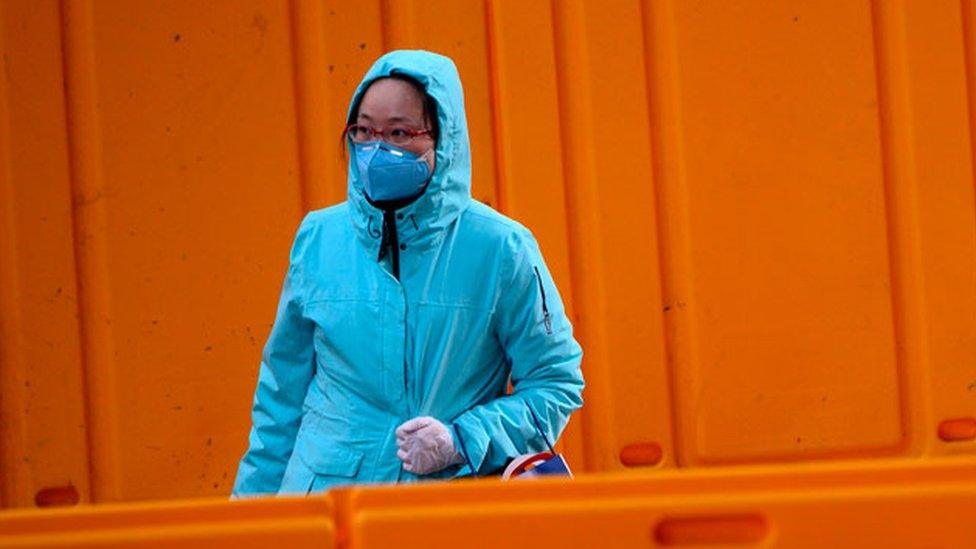Coronavirus: Some scientists say UK virus strategy is 'risking lives'
- Published
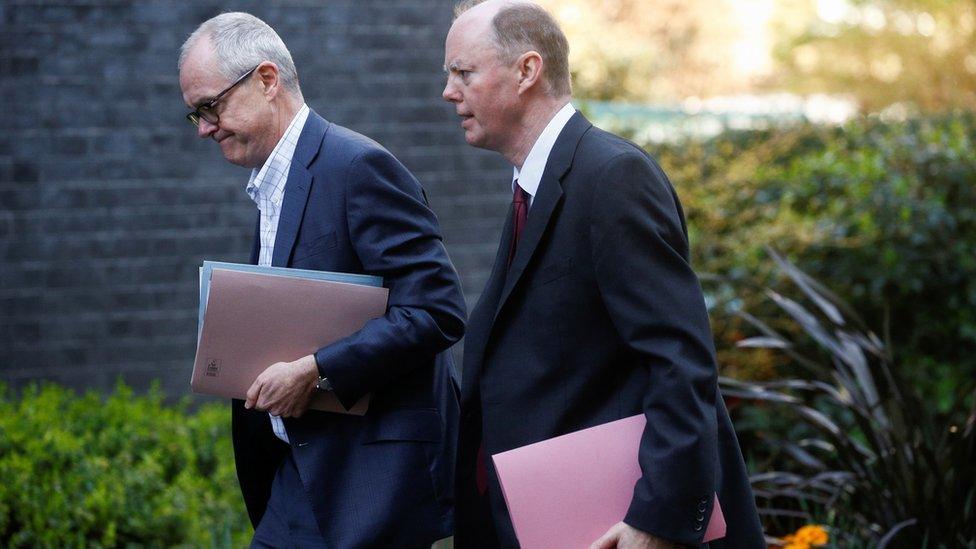
Architects of the UK's nuanced approach: Sir Patrick Vallance (left) and Prof Chris Whitty (right)
More than 200 scientists have written to the government urging them to introduce tougher measures to tackle the spread of Covid-19.
In an open letter, external, the 229 specialists in disciplines ranging from mathematics to genetics - though no leading experts in the science of the spread of diseases - say the UK's current approach will put the NHS under additional stress and "risk many more lives than necessary".
The signatories also criticised comments made by Sir Patrick Vallance, the government's chief scientific adviser, about managing the spread of the infection to make the population immune.
The Department of Health said Sir Patrick's comments had been misinterpreted.
The scientists - all from UK universities - also questioned the government's view that people would become fed up with restrictions if they were imposed too soon.
Their letter was published on the day it was announced 10 more people in the UK have died after testing positive for coronavirus, bringing the total number of deaths to 21.
Meanwhile the government's scientific advisory group for emergencies (Sage) advised, external that measures to protect vulnerable people - including household isolation - "will need to be instituted soon".
Sir Patrick and the UK's chief medical adviser, Prof Chris Whitty, have said they intend to publish the computer models on which their strategy is based.
The UK's approach to coping with the coronavirus pandemic has been in stark contrast to other countries. The whole of Italy has been on lockdown since Tuesday, while Poland is set to close its borders for two weeks.
On Saturday the French government ordered the closure of all non-essential public locations from midnight (23:00 GMT Saturday).
And Spain has declared a 15-day national lockdown on Monday to battle the virus,
Measures 'insufficient'
In the open letter the group of scientists argue that stronger "social distancing measures" would "dramatically" slow the rate of growth of the disease in the UK, and would spare "thousands of lives".
The group, specialising in a range of disciplines, ranging from mathematics to genetics said the current measures are "insufficient" and "additional and more restrictive measures should be taken immediately", as is happening in other countries.


On Friday, Sir Patrick suggested managing the spread of the disease so that the population gains some immunity to the disease was a part of the government strategy.
This idea, known as "herd immunity", means at-risk individuals are protected from infection because they are surrounded by people who are resistant to the disease.

EASY STEPS: What should I do?
A SIMPLE GUIDE: What are the symptoms?
CONTAINMENT: What it means to self-isolate
LOOK-UP TOOL: Check cases in your area
VIDEO: The 20-second hand wash

Rough estimates indicate that herd immunity to Covid-19 would be reached when approximately 60% of the population has had the disease.
But in the open letter, the scientists said: "Going for 'herd immunity' at this point does not seem a viable option."
'Laissez-faire attitude'
The major downside of herd immunity, according to Birmingham University's Prof Willem van Schaik, is that this will mean that in the UK alone at least 36 million people will need to be infected and recover.
"It is almost impossible to predict what that will mean in terms of human costs, but we are conservatively looking at tens of thousands of deaths, and possibly at hundreds of thousands of deaths," he said.
"The only way to make this work would be to spread out these millions of cases over a relatively long period of time so that the NHS does not get overwhelmed."
Willem van Schaik, professor of microbiology and infection at the University of Birmingham, was one of the signatories
Prof van Schaik noted that the UK is the only country in Europe that is following what he described as its "laissez-faire attitude to the virus".
But a Department of Health and Social care spokesperson said that Sir Patrick's comments had been misinterpreted.
"Herd immunity is not part of our action plan, but is a natural by-product of an epidemic. Our aims are to save lives, protect the most vulnerable, and relieve pressure on our NHS," he said.
"We have now moved out of the contain phase and into delay, and we have experts working round the clock. Every measure that we have or will introduce will be based on the best scientific evidence.
"Our awareness of the likely levels of immunity in the country over the coming months will ensure our planning and response is as accurate and effective as possible."
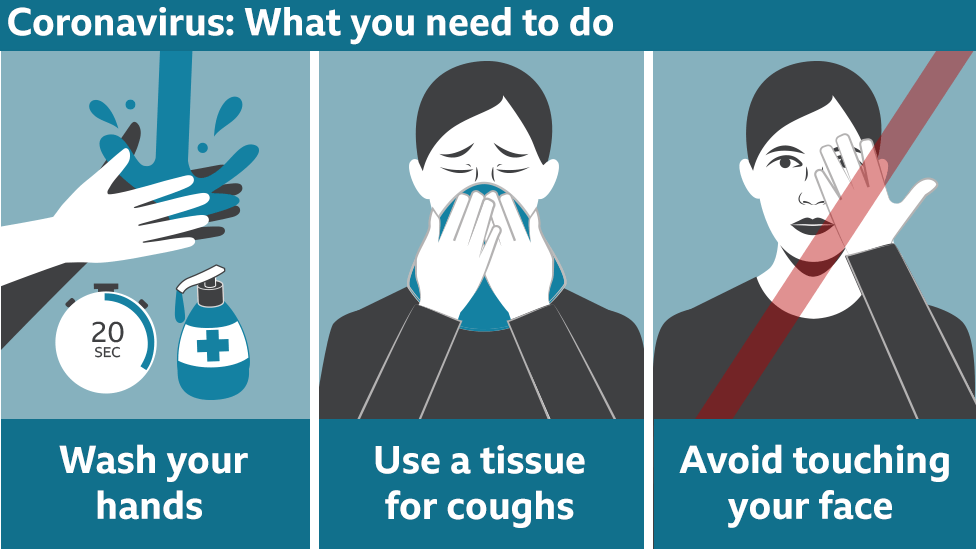
In a separate letter to the government, external, more than 200 behavioural scientists have questioned the government's argument that starting tougher measures too soon would lead to people not sticking to them just at the point that the epidemic is at its height.
"While we fully support an evidence-based approach to policy that draws on behavioural science, we are not convinced that enough is known about 'behavioural fatigue' or to what extent these insights apply to the current exceptional circumstances," the letter said.
"Such evidence is necessary if we are to base a high-risk public health strategy on it."
"In fact, it seems likely that even those essential behaviour changes that are presently required (e.g., handwashing) will receive far greater uptake the more urgent the situation is perceived to be. Carrying on as normal for as long as possible undercuts that urgency," it added.
The scientists said "radical behaviour change" could have a "much better" effect and could "save very large numbers of lives".
"Experience in China and South Korea is sufficiently encouraging to suggest that this possibility should at least be attempted," it added.
The second letter called on the government to reconsider its stance on "behavioural fatigue" and to share the evidence on which it based this stance.
Follow Pallab on Twitter, external
- Published23 March 2020
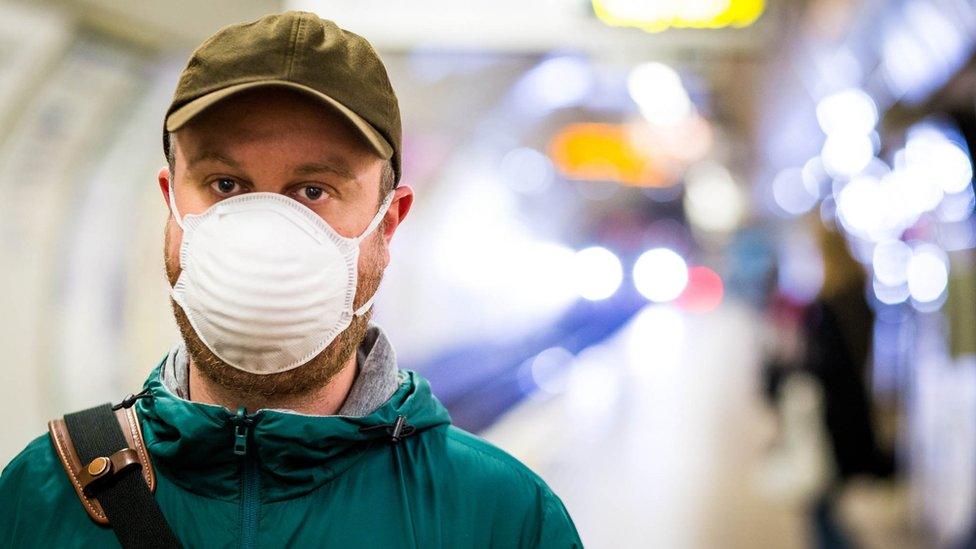
- Published22 February 2022
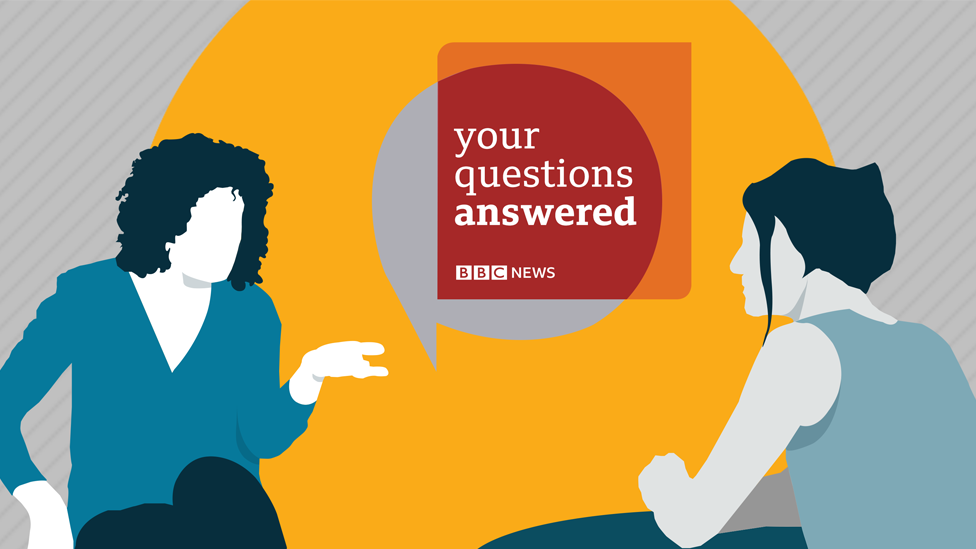
- Published24 March 2020
